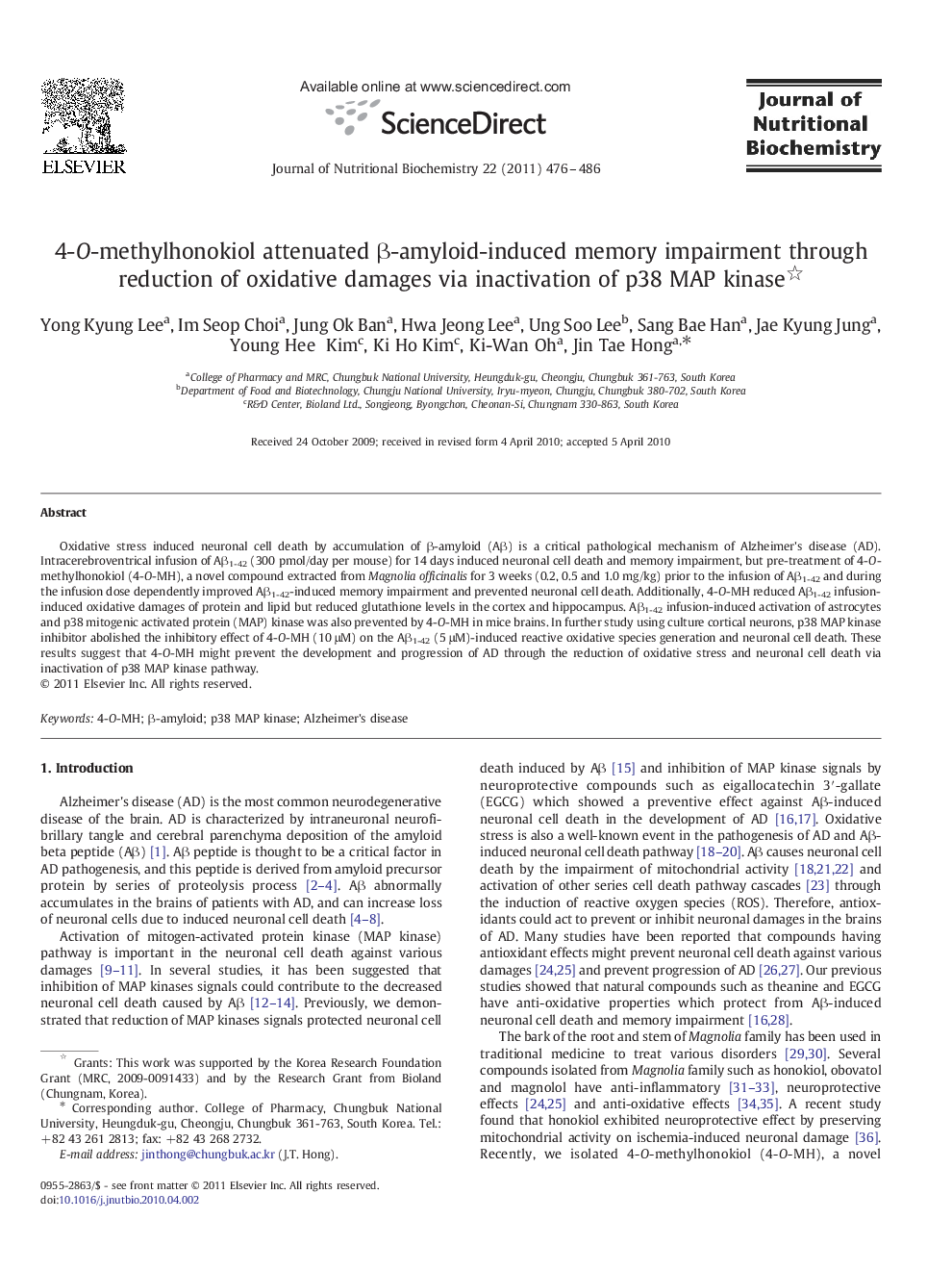| Article ID | Journal | Published Year | Pages | File Type |
|---|---|---|---|---|
| 1990643 | The Journal of Nutritional Biochemistry | 2011 | 11 Pages |
Oxidative stress induced neuronal cell death by accumulation of β-amyloid (Aβ) is a critical pathological mechanism of Alzheimer's disease (AD). Intracerebroventrical infusion of Aβ1-42 (300 pmol/day per mouse) for 14 days induced neuronal cell death and memory impairment, but pre-treatment of 4-O-methylhonokiol (4-O-MH), a novel compound extracted from Magnolia officinalis for 3 weeks (0.2, 0.5 and 1.0 mg/kg) prior to the infusion of Aβ1-42 and during the infusion dose dependently improved Aβ1-42-induced memory impairment and prevented neuronal cell death. Additionally, 4-O-MH reduced Aβ1-42 infusion-induced oxidative damages of protein and lipid but reduced glutathione levels in the cortex and hippocampus. Aβ1-42 infusion-induced activation of astrocytes and p38 mitogenic activated protein (MAP) kinase was also prevented by 4-O-MH in mice brains. In further study using culture cortical neurons, p38 MAP kinase inhibitor abolished the inhibitory effect of 4-O-MH (10 μM) on the Aβ1-42 (5 μM)-induced reactive oxidative species generation and neuronal cell death. These results suggest that 4-O-MH might prevent the development and progression of AD through the reduction of oxidative stress and neuronal cell death via inactivation of p38 MAP kinase pathway.
